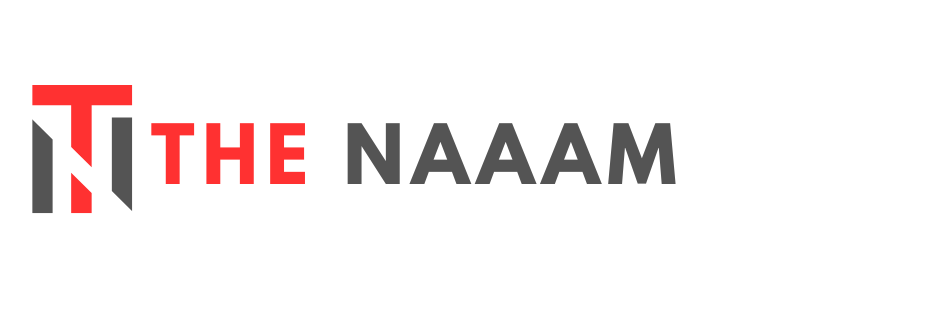Table of Contents
ToggleUnderstanding the Vital Relationship Between Law and Ethics in Healthcare
How Law And Ethics Are Essential To Health Care Practitioners? Healthcare practitioners operate within a complex framework of legal regulations and ethical principles that guide their actions and decisions. From maintaining patient confidentiality to ensuring informed consent, the interplay between law and ethics is integral to the delivery of high-quality healthcare services. In this article, we delve into the importance of law and ethics in healthcare practice and explore how practitioners navigate these critical domains to uphold patient well-being and professional integrity.
In the realm of healthcare, law and ethics serve as guiding pillars that dictate the conduct and responsibilities of healthcare professionals. While laws provide a formalized framework of rules and regulations, ethics encompass moral principles that govern individual behavior and decision-making. Together, they form the foundation upon which healthcare practitioners operate, ensuring that patient rights are protected and ethical standards are upheld.
Definition of Law and Ethics in Healthcare
In healthcare, law refers to a set of rules, regulations, and statutes that govern the conduct of healthcare professionals, institutions, and organizations. These laws are established by legislative bodies and are enforced by governmental agencies to ensure patient safety, quality of care, and ethical standards. Healthcare laws encompass a wide range of areas, including licensing requirements, patient rights, privacy protections, medical malpractice liability, and healthcare fraud and abuse.
Ethics in healthcare, on the other hand, pertains to the moral principles and values that guide the behavior and decision-making of healthcare practitioners. Ethical considerations in healthcare extend beyond legal requirements and focus on principles such as beneficence (doing good), non-maleficence (avoiding harm), autonomy (respect for patient’s choices), and justice (fair distribution of resources). Ethics in healthcare emphasize the importance of respecting patient autonomy, maintaining confidentiality, and acting in the best interest of patients.
Ethics In Healthcare Examples
In healthcare, ethics manifests in various ways, such as ensuring informed consent before medical procedures, maintaining patient confidentiality, prioritizing patient well-being through beneficence, and respecting cultural diversity to provide tailored care. Ethics In Healthcare Examples imperatives guiding healthcare professionals in their commitment to uphold patient rights, promote trust, and deliver quality care.
Importance of Law and Ethics in Healthcare Practice
The significance of law and ethics in healthcare practice cannot be overstated. These two pillars form the foundation upon which the entire healthcare system operates, ensuring the delivery of safe, effective, and ethical patient care.
- Patient Protection: Laws and ethical principles are designed to protect the rights and well-being of patients. Legal regulations, such as those governing informed consent and patient confidentiality, safeguard patient autonomy and privacy. Ethical principles guide healthcare practitioners in making decisions that prioritize the best interests of patients and promote their overall health and welfare.
- Professional Accountability: Compliance with legal and ethical standards fosters accountability among healthcare professionals. By adhering to laws and ethical guidelines, healthcare practitioners demonstrate their commitment to professional integrity and ethical conduct. This accountability helps maintain public trust in the healthcare system and ensures that patients receive care from qualified, trustworthy professionals.
- Quality of Care: Law and Ethical Principles In Healthcare play a crucial role in maintaining the quality and safety of healthcare services. Legal regulations set standards for the education, training, and licensure of healthcare professionals, ensuring competency and proficiency in patient care. Ethical principles guide practitioners in delivering compassionate, patient-centered care that respects the dignity and rights of individuals.
- Risk Management: Adherence to legal and ethical standards helps mitigate risks and liabilities in healthcare practice. By following established laws and ethical guidelines, healthcare professionals minimize the likelihood of medical errors, malpractice claims, and legal disputes. This proactive approach to risk management protects both patients and healthcare providers from potential harm and legal consequences.
- Promotion of Trust and Confidence: A healthcare system that operates within a framework of law and Ethical Decision-making In Healthcare Examples inspires trust and confidence among patients, families, and communities. When patients know that their rights are protected by legal regulations and ethical standards, they are more likely to seek healthcare services and engage actively in their own care. Trust between patients and providers is essential for building strong therapeutic relationships and achieving positive health outcomes.
Overview of Legal Regulations in Healthcare
Healthcare is subject to a myriad of legal regulations aimed at safeguarding patient safety, privacy, and quality of care. These regulations span a wide range of areas, including licensure requirements, medical malpractice liability, and healthcare fraud and abuse statutes. Compliance with these laws is not only mandatory but also essential for maintaining the integrity of healthcare practice and minimizing legal risks.
- Licensing and Credentialing: Healthcare professionals are required to obtain licenses and certifications to practice within their respective fields. Licensing boards set standards for education, training, and competency, ensuring that practitioners meet minimum qualifications to provide safe and effective care.
- Patient Rights: Legal regulations protect the rights of patients in healthcare settings. These rights include the right to informed consent, privacy and confidentiality, access to medical records, and the right to refuse treatment. Laws such as the Health Insurance Portability and Accountability Act (HIPAA) establish safeguards to protect patient health information and ensure confidentiality.
- Medical Malpractice Liability: Legal regulations govern medical malpractice claims, which arise when healthcare providers fail to meet the standard of care expected in their profession, resulting in harm to patients. Malpractice laws establish the criteria for proving negligence, damages, and liability, and outline procedures for resolving disputes through litigation or alternative dispute resolution mechanisms.
- Healthcare Fraud and Abuse: Laws addressing healthcare fraud and abuse aim to prevent fraudulent activities and unethical practices within the healthcare industry. These laws prohibit activities such as billing fraud, kickbacks, false claims, and improper coding practices. Regulatory agencies, such as the Centers for Medicare and Medicaid Services (CMS) and the Department of Health and Human Services (HHS), enforce these laws and impose penalties for non-compliance.
- Quality and Safety Standards: Legal regulations establish standards for the quality and safety of healthcare services, facilities, and equipment. Regulatory agencies, such as the Food and Drug Administration (FDA) and the Joint Commission, set guidelines for the manufacture and distribution of medical products, as well as accreditation standards for healthcare facilities.
- Healthcare Reimbursement: Legal regulations govern the reimbursement and payment systems in healthcare, including Medicare, Medicaid, and private insurance programs. These regulations establish eligibility criteria, coverage guidelines, reimbursement rates, and billing procedures for healthcare services.
Impact of Legal Compliance on Healthcare Practice
The impact of legal compliance on healthcare practice is profound, shaping every aspect of patient care, organizational operations, and professional conduct. Compliance with legal regulations influences healthcare practice in the following ways:
- Patient Safety and Quality of Care: Legal compliance is essential for ensuring patient safety and maintaining high standards of care. Adherence to regulations related to licensure, credentialing, and clinical practice guidelines helps healthcare providers deliver safe and effective treatments, reduce medical errors, and improve patient outcomes.
- Risk Management and Liability Reduction: Compliance with legal regulations helps healthcare organizations mitigate risks and liabilities associated with medical malpractice, negligence, and regulatory violations. By following established protocols and guidelines, healthcare providers minimize the likelihood of adverse events, litigation, and financial penalties.
- Protection of Patient Rights and Privacy: Legal compliance safeguards patient rights, privacy, and confidentiality in healthcare settings. Adherence to laws such as HIPAA ensures the security and confidentiality of patient health information, protects against unauthorized disclosures, and maintains trust between patients and providers.
- Professional Accountability and Ethics: Legal compliance fosters accountability and ethical conduct among healthcare professionals. By adhering to professional standards, codes of ethics, and regulatory requirements, practitioners demonstrate their commitment to patient welfare, professional integrity, and ethical practice.
- Reimbursement and Financial Sustainability: Compliance with healthcare regulations is essential for ensuring reimbursement and financial sustainability for healthcare organizations. Non-compliance with billing, coding, and documentation requirements can result in denied claims, audits, and financial penalties, jeopardizing the financial viability of healthcare providers.
- Organizational Reputation and Accreditation: Legal compliance enhances the reputation and credibility of healthcare organizations in the eyes of patients, payers, and regulatory agencies. Compliance with accreditation standards, licensure requirements, and quality metrics demonstrates organizational commitment to excellence, safety, and transparency.
Ethical Principles in Healthcare
In addition to legal obligations, healthcare practitioners are bound by a set of ethical principles that guide their interactions with patients, colleagues, and the broader healthcare system. These principles, such as beneficence, non-maleficence, autonomy, and justice, form the ethical framework within which healthcare decisions are made. However, navigating ethical dilemmas can be challenging, requiring careful consideration of competing interests and values.
Core Ethical Principles for Healthcare Practitioners
Healthcare practitioners are guided by a set of core ethical principles that shape their interactions with patients, colleagues, and the broader healthcare system. These principles serve as moral guidelines for ethical decision-making and professional conduct. Some of the core ethical principles for healthcare practitioners include:
- Beneficence: The principle of beneficence emphasizes the obligation of healthcare practitioners to act in the best interest of their patients and to promote their well-being. Practitioners are committed to providing care that maximizes benefits and minimizes harm, ensuring that patients receive the highest quality of care possible.
- Non-maleficence: Non-maleficence requires healthcare practitioners to avoid causing harm to their patients. Practitioners strive to minimize the risk of harm associated with medical interventions, treatments, and procedures, prioritizing patient safety and well-being above all else.
- Autonomy: The principle of autonomy recognizes the right of patients to make their own healthcare decisions based on their values, preferences, and beliefs. Healthcare practitioners respect patient autonomy by providing information, facilitating informed consent, and involving patients in the decision-making process regarding their care.
- Justice: Justice entails the fair and equitable distribution of healthcare resources, services, and opportunities. Healthcare practitioners are committed to upholding principles of fairness, impartiality, and equity in the allocation of healthcare resources, ensuring that all patients have access to necessary care regardless of their socioeconomic status, race, ethnicity, or other factors.
- Veracity: Veracity, or truthfulness, requires healthcare practitioners to be honest and transparent in their communication with patients, colleagues, and other stakeholders. Practitioners provide accurate information to patients about their diagnosis, prognosis, treatment options, and potential risks and benefits, enabling patients to make informed decisions about their care.
- Confidentiality: Confidentiality is the obligation of healthcare practitioners to protect the privacy and confidentiality of patient health information. Practitioners maintain the confidentiality of patient records and communications, disclosing patient information only with appropriate consent or as required by law.
- Fidelity: Fidelity, or loyalty, involves the obligation of healthcare practitioners to act in the best interests of their patients and to fulfill their professional responsibilities with integrity and commitment. Practitioners uphold ethical standards of practice, adhere to professional codes of conduct, and prioritize the welfare of their patients above personal interests or external pressures.
These core ethical principles serve as guiding values for healthcare practitioners, informing their actions, decisions, and relationships within the healthcare setting. By upholding these principles, practitioners promote ethical conduct, trust, and integrity in their professional practice, ultimately contributing to the delivery of high-quality patient care.
Ethical Dilemmas Faced by Healthcare Professionals
Healthcare professionals often encounter ethical dilemmas that challenge their commitment to core ethical principles and require careful consideration and resolution. These dilemmas arise in various clinical and organizational contexts and involve conflicting values, interests, or obligations. Some common ethical dilemmas faced by healthcare professionals include:
- End-of-Life Care: Healthcare professionals may face ethical dilemmas when making decisions about end-of-life care for patients with terminal illnesses or irreversible conditions. Balancing the principles of autonomy, beneficence, and non-maleficence, practitioners must navigate complex issues such as withholding or withdrawing life-sustaining treatment, palliative care, and advance care planning.
- Informed Consent: Ethical dilemmas may arise when obtaining informed consent from patients for medical interventions, treatments, or research participation. Practitioners must ensure that patients have the capacity to make informed decisions, provide sufficient information about risks, benefits, and alternatives, and respect patients’ right to refuse treatment or participate in research.
- Confidentiality and Privacy: Healthcare professionals may encounter ethical dilemmas related to patient confidentiality and privacy, particularly in cases involving sensitive information or disclosures. Practitioners must balance the duty to maintain confidentiality with the obligation to protect patients and others from harm, such as in cases of potential harm to self or others.
- Resource Allocation: Ethical dilemmas may arise when allocating scarce healthcare resources, such as organs for transplantation, intensive care unit beds, or medications. Practitioners must consider principles of justice, fairness, and utility in making decisions about resource allocation, ensuring equitable distribution and maximizing benefits for the greatest number of patients.
- Conflict of Interest: Healthcare professionals may face ethical dilemmas when conflicts of interest arise between their professional duties and personal interests or external influences. Practitioners must disclose and manage conflicts of interest transparently, ensuring that patient welfare remains the primary consideration in decision-making and avoiding actions that compromise professional integrity or impartiality.
- Truthfulness and Disclosure: Ethical dilemmas may occur when communicating information to patients, colleagues, or stakeholders, particularly in cases involving adverse events, medical errors, or unanticipated outcomes. Practitioners must balance the duty to be truthful and transparent with the potential impact on patient trust, emotional well-being, and relationships with colleagues.
- Cultural and Value Differences: Ethical dilemmas may arise when providing care to patients from diverse cultural, religious, or value backgrounds. Practitioners must respect and accommodate patients’ cultural beliefs, values, and preferences while upholding ethical standards of care, ensuring that care is culturally sensitive, respectful, and patient-centered.
Integration of Law and Ethics in Practice
While law and ethics serve distinct purposes, they often intersect in healthcare practice, influencing decision-making and patient care. Healthcare professionals must navigate the complexities of legal requirements while upholding ethical standards, striking a delicate balance between compliance and moral integrity. Case studies highlighting real-world scenarios underscore the importance of integrating legal and ethical considerations into clinical practice.
Balancing Legal Requirements and Ethical Considerations
Healthcare practitioners often find themselves navigating the delicate balance between legal requirements and ethical considerations in their daily practice. While legal regulations provide a framework for conduct, ethical principles guide practitioners in making decisions that prioritize patient welfare and uphold professional integrity. Balancing these two factors requires practitioners to carefully weigh the legal obligations against ethical values, considering the potential impact on patient care and outcomes.
In some cases, legal requirements may align with ethical principles, making compliance straightforward. For example, laws mandating informed consent ensure that patients have the autonomy to make decisions about their care, aligning with the ethical principle of respect for patient autonomy. Similarly, laws prohibiting discrimination in healthcare settings uphold the ethical principle of justice, ensuring equitable access to care for all patients.
However, there are instances where legal requirements may conflict with ethical considerations, presenting healthcare practitioners with ethical dilemmas. For example, a legal mandate to disclose patient information to law enforcement officials may conflict with the ethical duty to maintain patient confidentiality. In such cases, practitioners must carefully consider the potential consequences of their actions, balancing the legal obligation to comply with the ethical duty to protect patient privacy and trust.
Ultimately, healthcare practitioners must navigate these complex situations with integrity, transparency, and a commitment to patient welfare. By engaging in ethical reflection, seeking guidance from colleagues and ethical committees, and advocating for patient rights, practitioners can uphold both legal requirements and ethical principles in their practice, ensuring the delivery of compassionate, patient-centered care.
Case Studies Illustrating the Intersection of Law and Ethics
- Confidentiality vs. Duty to Warn: In a case where a patient discloses plans to harm themselves or others, healthcare practitioners face a dilemma between maintaining patient confidentiality and fulfilling their duty to warn potential victims. While laws vary by jurisdiction, practitioners must balance legal requirements for mandatory reporting with ethical considerations for preserving patient trust and autonomy. By engaging in ethical deliberation and seeking guidance from legal and ethical experts, practitioners can navigate this complex situation while prioritizing patient safety and well-being.
- End-of-Life Care and Advance Directives: When caring for patients with advanced illness or terminal conditions, healthcare practitioners encounter legal and ethical dilemmas regarding end-of-life care and advance directives. Legal requirements may dictate the use of life-sustaining treatments or the process for withholding or withdrawing care, while ethical considerations emphasize the importance of respecting patient autonomy and honoring their wishes. By facilitating open discussions about end-of-life preferences, ensuring informed consent, and adhering to legal and ethical guidelines, practitioners can provide compassionate and patient-centered care at the end of life.
- Resource Allocation and Rationing: During times of resource scarcity, such as a public health crisis or natural disaster, healthcare practitioners must grapple with legal and ethical dilemmas related to resource allocation and rationing. Legal frameworks may provide guidelines for triage protocols or allocation decisions, while ethical principles of justice and utility emphasize the importance of fair distribution and maximizing benefits for the greatest number of patients. By adhering to legal requirements, engaging in transparent decision-making processes, and prioritizing patient welfare, practitioners can navigate these challenging situations while upholding ethical standards of care.
- Cultural Competence and Religious Beliefs: When providing care to patients from diverse cultural or religious backgrounds, healthcare practitioners encounter legal and ethical challenges related to cultural competence and respect for patient beliefs. Legal requirements may mandate accommodations for religious practices or cultural preferences, while ethical principles of respect for patient autonomy and cultural sensitivity underscore the importance of honoring patient values and traditions. By engaging in cultural humility, seeking to understand patients’ perspectives, and collaborating with cultural liaisons or interpreters, practitioners can provide culturally competent care that respects patient dignity and autonomy.
Consequences of Ignoring Law and Ethics
Failure to adhere to legal and ethical standards can have serious consequences for healthcare practitioners, ranging from legal penalties to damage to professional reputation. Moreover, ethical lapses can erode patient trust and compromise the quality of care. By prioritizing compliance with both legal and ethical norms, healthcare professionals mitigate risks and uphold the highest standards of professionalism.
Legal Penalties for Non-Compliance
Non-compliance with legal regulations in healthcare can result in a range of legal penalties for healthcare organizations, practitioners, and individuals involved. These penalties are imposed to enforce regulatory standards, protect patient safety, and uphold the integrity of the healthcare system. Some of the legal penalties for non-compliance include:
- Fines and Monetary Penalties: Regulatory agencies have the authority to impose fines and monetary penalties on healthcare organizations and individuals found to be in violation of legal regulations. The amount of fines may vary depending on the severity of the violation, the impact on patient care, and the history of non-compliance.
- Civil Lawsuits and Legal Damages: Patients who suffer harm as a result of non-compliance with legal standards may file civil lawsuits against healthcare providers, seeking compensation for damages such as medical expenses, pain and suffering, and loss of income. Civil lawsuits can result in legal settlements or judgments against defendants found liable for negligence or malpractice.
- Criminal Charges and Prosecution: In cases of egregious violations of law or intentional misconduct, healthcare practitioners and organizations may face criminal charges and prosecution by law enforcement authorities. Criminal charges may include offenses such as healthcare fraud, illegal prescribing practices, patient abuse, or falsification of medical records. Conviction of criminal charges can result in fines, imprisonment, and loss of professional licensure.
- Regulatory Sanctions and Remedial Actions: Regulatory agencies have the authority to impose sanctions and remedial actions on healthcare organizations and practitioners found to be in violation of legal regulations. These sanctions may include license revocation or suspension, probationary periods, corrective action plans, or mandatory compliance training. Failure to comply with regulatory sanctions can result in further disciplinary actions or enforcement measures.
- Exclusion from Federal Healthcare Programs: Healthcare providers and organizations convicted of certain offenses, such as healthcare fraud or abuse, may be excluded from participation in federal healthcare programs such as Medicare and Medicaid. Exclusion from these programs can have significant financial implications, as providers are ineligible to receive reimbursement for services rendered to program beneficiaries.
- Reputation Damage and Public Scrutiny: Non-compliance with legal regulations can tarnish the reputation and credibility of healthcare organizations and practitioners, leading to public scrutiny, media attention, and loss of trust among patients, stakeholders, and the community. Reputation damage can have long-lasting consequences for the viability and sustainability of healthcare businesses and careers.
What Is Care Value In Health And Social?
In health and social care, care values encompass a set of principles that guide professionals in providing quality care and support to individuals. These values include promoting dignity, respect, empathy, confidentiality, and promoting independence while ensuring the safety and well-being of those receiving care. Care values emphasize the importance of person-centered care, where individuals’ preferences, needs, and rights are prioritized, fostering trust, empowerment, and positive outcomes in healthcare and social settings.
Ethical Implications of Unethical Practices
Unethical practices in healthcare can have far-reaching ethical implications for patients, healthcare professionals, organizations, and society as a whole. Ethical implications arise when healthcare practitioners engage in behaviors or actions that violate fundamental ethical principles and standards of conduct. Some of the ethical implications of unethical practices include:
- Patient Harm and Distrust: Unethical practices, such as negligence, incompetence, or fraud, can result in harm to patients, eroding trust and confidence in the healthcare system. Patients who experience harm as a result of unethical behavior may suffer physical, emotional, and financial consequences, leading to loss of trust in healthcare providers and institutions.
- Violation of Patient Rights: Unethical practices may involve violations of patient rights, such as the right to informed consent, privacy, confidentiality, and autonomy. Healthcare practitioners who fail to respect patient rights undermine the ethical foundation of healthcare practice and compromise the integrity of the provider-patient relationship.
- Professional Integrity and Reputation: Healthcare professionals who engage in unethical behavior risk damaging their professional integrity, reputation, and credibility within the healthcare community. Ethical lapses, such as dishonesty, conflict of interest, or breach of confidentiality, can tarnish the reputation of individual practitioners and undermine the trust of colleagues and peers.
- Legal and Regulatory Consequences: Unethical practices often carry legal and regulatory consequences, including fines, sanctions, licensure revocation, and criminal charges. Healthcare professionals found guilty of unethical behavior may face disciplinary actions by regulatory bodies, civil lawsuits, and criminal prosecution, leading to professional and financial repercussions.
- Erosion of Ethical Culture: Unethical practices within healthcare organizations can contribute to the erosion of ethical culture and values, fostering a climate of distrust, cynicism, and moral distress among staff members. Healthcare organizations that fail to address unethical behavior risk compromising patient safety, quality of care, and organizational effectiveness.
- Social and Public Health Impact: Unethical practices in healthcare can have broader social and public health implications, undermining public trust in the healthcare system and contributing to disparities in access to care and health outcomes. Ethical breaches, such as discrimination, bias, or exploitation, perpetuate social injustices and inequalities, exacerbating disparities in healthcare delivery and outcomes.
Importance of Continuous Education
Given the dynamic nature of healthcare law and ethics, ongoing education and training are essential for healthcare practitioners. Staying abreast of legal developments and ethical guidelines enables professionals to adapt to changing norms and emerging issues. Training programs focused on ethical decision-making and legal compliance equip practitioners with the knowledge and skills needed to navigate complex healthcare environments.
Keeping Up with Legal and Ethical Changes
Staying abreast of legal and ethical changes in healthcare is essential for healthcare professionals to maintain compliance, uphold ethical standards, and deliver high-quality patient care. Given the dynamic nature of healthcare laws and ethical guidelines, healthcare professionals must engage in continuous learning and professional development to stay informed about emerging issues, updates, and best practices. Some strategies for keeping up with legal and ethical changes include:
- Continuing Education Programs: Importance Of Ethics In Healthcare professionals can participate in continuing education programs, seminars, workshops, and conferences focused on legal and ethical topics relevant to their practice areas. These programs provide opportunities to learn from experts, exchange knowledge and experiences with peers, and gain insights into recent developments and trends in healthcare law and ethics.
- Professional Organizations and Associations: Joining professional organizations and associations related to their specialty or field of practice can provide healthcare professionals with access to resources, publications, webinars, and networking opportunities focused on legal and ethical issues. These organizations often offer educational events, updates on legislative changes, and forums for discussion and collaboration among members.
- Online Resources and Publications: Healthcare professionals can leverage online resources, such as websites, blogs, newsletters, and scholarly journals, to access up-to-date information and analysis on legal and ethical topics in healthcare. Subscribing to reputable publications, following experts on social media platforms, and joining online forums or discussion groups can facilitate ongoing learning and knowledge-sharing.
- Legal and Ethical Updates from Regulatory Agencies: Monitoring updates and guidance from regulatory agencies, such as the Centers for Medicare and Medicaid Services (CMS), the Department of Health and Human Services (HHS), and professional licensing boards, can help healthcare professionals stay informed about changes in healthcare regulations, policies, and enforcement priorities.
- Collaboration with Legal and Ethical Experts: Collaborating with legal counsel, ethics committees, and consultants specializing in healthcare law and ethics can provide healthcare professionals with guidance, advice, and support in navigating complex legal and ethical issues. Establishing relationships with experts in these fields can facilitate timely access to resources and assistance in addressing challenging situations.
- Ethics Consultation Services: Some healthcare organizations offer ethics consultation services to assist healthcare professionals in resolving ethical dilemmas, addressing conflicts, and navigating complex ethical issues in patient care. Ethics consultation services provide a confidential and supportive environment for practitioners to discuss ethical concerns, explore options, and develop ethical solutions in accordance with legal and ethical standards.
7 Ethical Principles In Nursing
In nursing, ethical principles serve as guiding frameworks for professional practice and decision-making. Seven key ethical principles commonly upheld in nursing include:
- Respect for Autonomy: Nurses respect the right of patients to make informed decisions about their healthcare, ensuring that individuals are empowered to participate in decisions regarding their treatment and care.
- Beneficence: Nurses are committed to promoting the well-being and best interests of patients, striving to provide care that maximizes positive outcomes and enhances overall quality of life.
- Non-Maleficence: Nurses adhere to the principle of non-maleficence, aiming to avoid causing harm or injury to patients and minimizing risks associated with nursing interventions.
- Justice: Nurses advocate for fairness and equity in the distribution of healthcare resources and access to care, ensuring that all patients receive treatment based on their needs and without discrimination.
- Veracity: Nurses uphold honesty and truthfulness in their interactions with patients, colleagues, and other healthcare professionals, providing accurate information and transparent communication to foster trust and informed decision-making.
- Fidelity: Nurses demonstrate loyalty, integrity, and professional commitment in their relationships with patients, maintaining confidentiality, honoring promises, and acting in accordance with ethical standards and legal obligations.
- Accountability: Nurses take responsibility for their actions, decisions, and professional conduct, recognizing the impact of their practice on patient outcomes and the broader healthcare environment, and striving to meet professional standards and ethical obligations.
Training Programs for Healthcare Professionals
Training programs for healthcare professionals play a crucial role in equipping practitioners with the knowledge, skills, and competencies needed to navigate legal and ethical challenges, deliver quality care, and uphold professional standards. These programs cover a wide range of topics relevant to healthcare practice, including:
- Legal Compliance and Regulatory Requirements: Training programs provide healthcare professionals with an understanding of legal regulations, statutes, and policies governing healthcare practice. Topics may include licensure and credentialing requirements, healthcare fraud and abuse laws, HIPAA regulations, informed consent, and documentation standards.
- Ethical Principles and Decision-Making: Training programs focus on ethical principles, values, and frameworks that guide healthcare practice and decision-making. Healthcare professionals learn about principles such as beneficence, non-maleficence, autonomy, justice, and veracity, as well as ethical dilemmas commonly encountered in clinical practice.
- Patient Rights and Confidentiality: Training programs emphasize the importance of respecting patient rights, confidentiality, and privacy in healthcare settings. Healthcare professionals learn about laws and ethical guidelines governing patient consent, confidentiality of medical records, disclosure of protected health information, and patient-provider communication.
- Cultural Competence and Diversity: Training programs promote cultural competence and sensitivity among healthcare professionals to effectively communicate and collaborate with patients from diverse cultural, linguistic, and socioeconomic backgrounds. Practitioners learn about cultural beliefs, values, and practices that may impact healthcare decision-making and treatment outcomes.
- Risk Management and Patient Safety: Training programs address strategies for mitigating risks, preventing medical errors, and promoting patient safety in healthcare practice. Healthcare professionals learn about best practices for identifying and managing risks, implementing quality improvement initiatives, and fostering a culture of safety within healthcare organizations.
- Interdisciplinary Collaboration and Communication: Training programs emphasize the importance of interdisciplinary collaboration and effective communication in healthcare teams. Healthcare professionals learn communication skills, conflict resolution techniques, and teamwork strategies to promote collaboration, coordination, and continuity of care.
Enhancing Patient Care through Law and Ethics
At its core, the integration of law and ethics in healthcare serves to enhance patient care and promote patient-centered practices. By adhering to legal requirements and ethical principles, healthcare practitioners prioritize patient well-being, respect patient autonomy, and foster trust in the provider-patient relationship. Upholding patient rights and dignity is paramount to delivering compassionate and effective care.
Building Trust and Confidence in Patients
Building trust and confidence in patients is essential for establishing strong therapeutic relationships, promoting patient satisfaction, and improving health outcomes. Healthcare professionals can employ various strategies to foster trust and confidence in their patients, including:
- Effective Communication: Healthcare professionals should communicate openly, honestly, and empathetically with patients, actively listening to their concerns, preferences, and questions. Clear and transparent communication helps patients feel heard, valued, and respected, enhancing trust in the healthcare provider.
- Respect for Patient Autonomy: Healthcare professionals should respect patient autonomy by involving patients in decision-making about their care, providing information about treatment options, risks, and benefits, and honoring patients’ preferences and choices. Empowering patients to participate in their care promotes a sense of control and ownership over their health decisions, fostering trust and confidence in the provider.
- Compassionate Care: Healthcare professionals should demonstrate compassion, kindness, and empathy in their interactions with patients, recognizing the emotional and psychological aspects of illness and healthcare experiences. Compassionate care builds rapport, alleviates anxiety, and enhances patient trust in the provider’s commitment to their well-being.
- Competence and Expertise: Healthcare professionals should demonstrate competence, expertise, and proficiency in their clinical skills and knowledge, instilling confidence in patients’ ability to provide high-quality care. Providing evidence-based treatments, adhering to best practices, and seeking opportunities for professional development inspire trust and confidence in the provider’s capabilities.
- Respect for Privacy and Confidentiality: Healthcare professionals should respect patient privacy and confidentiality by safeguarding protected health information, maintaining confidentiality of medical records, and ensuring secure communication channels. Respecting patient privacy promotes trust and confidence in the provider’s commitment to confidentiality and respect for patient rights.
- Responsive and Accessible Care: Healthcare professionals should be responsive and accessible to patients’ needs, concerns, and inquiries, offering timely appointments, prompt responses to inquiries, and effective follow-up care. Being available and accessible to patients builds trust and confidence in the provider’s availability and commitment to patient care.
Ensuring Patient Rights and Dignity
Ensuring patient rights and dignity is a fundamental ethical obligation for healthcare professionals, rooted in principles of respect, autonomy, and human dignity. Healthcare professionals can uphold patient rights and dignity by:
- Informed Consent: Healthcare professionals should obtain informed consent from patients before initiating treatment, ensuring that patients have the necessary information to make autonomous decisions about their care. Respecting patient autonomy and decision-making promotes dignity and self-determination.
- Privacy and Confidentiality: Healthcare professionals should protect patient privacy and confidentiality by safeguarding protected health information, maintaining secure medical records, and using discretion when discussing patient information with others. Respecting patient confidentiality preserves dignity and promotes trust in the healthcare provider.
- Respect for Cultural and Religious Beliefs: Healthcare professionals should respect and accommodate patients’ cultural, religious, and spiritual beliefs, practices, and preferences in their care. Recognizing and honoring cultural diversity promotes dignity, autonomy, and respect for patient values and identity.
- Pain Management and Comfort: Healthcare professionals should prioritize patient comfort, dignity, and well-being in pain management and symptom control, ensuring that patients receive compassionate and responsive care. Addressing pain and discomfort promotes dignity and enhances the patient’s quality of life.
- Non-Discrimination and Equity: Healthcare professionals should provide care without discrimination or prejudice based on factors such as race, ethnicity, gender, sexual orientation, socioeconomic status, or disability. Promoting equity and inclusivity in healthcare delivery upholds patient dignity and ensures fair treatment for all patients.
- End-of-Life Care and Palliative Support: Healthcare professionals should provide compassionate and respectful end-of-life care, honoring patients’ wishes, values, and goals for care. Supporting patients and families through the dying process with dignity, comfort, and emotional support promotes a sense of peace and dignity in the final stages of life.
Collaboration and Communication
Effective collaboration between healthcare professionals, legal experts, and ethicists is essential for addressing complex legal and ethical challenges. Establishing interdisciplinary committees and fostering open communication channels facilitate the resolution of ethical dilemmas and the development of ethical guidelines. By working together, stakeholders can ensure that legal and ethical considerations are appropriately balanced in healthcare decision-making.
Working with Legal and Ethical Committees
Healthcare organizations often establish legal and ethical committees to provide guidance, oversight, and support in navigating complex legal and ethical issues in patient care. Healthcare professionals can collaborate effectively with these committees by:
- Seeking Guidance and Consultation: Healthcare professionals facing legal or ethical dilemmas can seek guidance and consultation from legal and ethical committees. Consulting with committee members can provide valuable insights, expertise, and perspectives to help practitioners analyze issues, identify options, and develop ethical solutions.
- Reporting and Disclosure: Healthcare professionals should promptly report potential legal or ethical concerns to the appropriate legal and ethical committees for review and resolution. Reporting instances of non-compliance, misconduct, or ethical lapses allows committees to investigate, address, and mitigate risks to patient safety and welfare.
- Participating in Committee Activities: Healthcare professionals can actively participate in legal and ethical committee activities, such as policy development, case review, and education initiatives. Engaging in committee work allows practitioners to contribute their expertise, share best practices, and promote ethical awareness and compliance within the organization.
- Collaborating on Policy Development: Healthcare professionals can collaborate with legal and ethical committees to develop and revise policies, procedures, and guidelines related to legal and ethical issues in patient care. Participating in policy development ensures that organizational policies align with legal requirements, ethical standards, and best practices in healthcare.
- Adhering to Committee Recommendations: Healthcare professionals should adhere to recommendations and guidance provided by legal and ethical committees in addressing legal and ethical issues. Implementing committee recommendations demonstrates a commitment to ethical conduct, compliance with legal standards, and accountability for patient care outcomes.
Effective Communication Strategies in Ethical Dilemmas
Effective communication is essential for navigating ethical dilemmas in healthcare and resolving conflicts in a manner that upholds patient rights, respects professional integrity, and promotes ethical decision-making. Healthcare professionals can employ the following communication strategies in ethical dilemmas:
- Active Listening: Healthcare professionals should practice active listening, attentively and empathetically engaging with patients, colleagues, and stakeholders to understand their perspectives, concerns, and values. Active listening fosters trust, respect, and collaboration in addressing ethical dilemmas and finding mutually acceptable solutions.
- Clarity and Transparency: Healthcare professionals should communicate information clearly, honestly, and transparently, providing patients and stakeholders with accurate and understandable explanations of the situation, options, and potential outcomes. Transparency promotes trust, credibility, and informed decision-making in ethical dilemmas.
- Respectful Dialogue: Healthcare professionals should engage in respectful dialogue and discourse when discussing ethical dilemmas with colleagues, patients, and family members, acknowledging diverse viewpoints, values, and cultural backgrounds. Respectful dialogue fosters mutual understanding, collaboration, and consensus-building in ethical decision-making.
- Empathy and Compassion: Healthcare professionals should demonstrate empathy, compassion, and sensitivity in their communication with patients and families facing ethical dilemmas, recognizing the emotional and psychological impact of challenging situations. Empathetic communication validates patient experiences, builds rapport, and facilitates coping and resilience.
- Shared Decision-Making: Healthcare professionals should engage patients and families in shared decision-making processes, involving them as active participants in ethical discussions, deliberations, and decision-making about their care. Shared decision-making promotes patient autonomy, empowerment, and ownership of healthcare decisions, enhancing satisfaction and trust in the healthcare provider.
- Conflict Resolution Skills: Healthcare professionals should possess effective conflict resolution skills to address disagreements, conflicts, or tensions that may arise in ethical dilemmas. Using techniques such as negotiation, mediation, and compromise, practitioners can facilitate constructive dialogue, reconcile differences, and reach mutually acceptable resolutions.
Challenges in Implementing Law and Ethics
Despite the importance of law and ethics in healthcare, implementing these principles can be fraught with challenges. Cultural and societal differences may influence ethical perspectives, leading to conflicts in practice. Addressing these challenges requires sensitivity to diverse beliefs and values, as well as a commitment to ethical dialogue and resolution. By acknowledging and navigating these complexities, healthcare practitioners can uphold the highest standards of professionalism.
Cultural and Societal Differences
Cultural and societal differences play a significant role in shaping perceptions, beliefs, values, and behaviors related to healthcare, ethics, and legal issues. Healthcare professionals must recognize and respect these differences to provide culturally competent and sensitive care. Some key considerations regarding cultural and societal differences include:
- Cultural Beliefs and Practices: Different cultures may hold unique beliefs and practices regarding health, illness, healing, and the role of healthcare providers. Healthcare professionals should be attentive to patients’ cultural beliefs and practices, respecting diversity and tailoring care to align with patients’ cultural preferences and values.
- Language and Communication: Language barriers can pose challenges in healthcare interactions, impacting patients’ ability to communicate effectively with healthcare providers and understand medical information. Healthcare professionals should use interpreters or language services to facilitate communication with patients who have limited English proficiency, ensuring that patients receive clear and accurate information about their care.
- Health Literacy and Education: Cultural and societal differences may influence levels of health literacy and understanding of healthcare concepts among patients. Healthcare professionals should assess patients’ health literacy levels and provide education and information in ways that are accessible, culturally relevant, and easy to understand, empowering patients to make informed decisions about their health.
- Family Dynamics and Decision-Making: In some cultures, family members play a significant role in healthcare decision-making and care coordination. Healthcare professionals should be mindful of family dynamics and hierarchies, involving family members as appropriate in discussions about treatment options, advance care planning, and end-of-life decisions.
- Ethnic and Racial Disparities: Cultural and societal differences can contribute to disparities in healthcare access, quality, and outcomes among different ethnic and racial groups. Healthcare professionals should address systemic barriers and inequalities, advocate for equitable healthcare policies and practices, and work to eliminate disparities in healthcare delivery and outcomes.
Addressing Legal and Ethical Conflicts
Legal and ethical conflicts can arise in healthcare when legal requirements, ethical principles, and professional responsibilities intersect or conflict with one another. Healthcare professionals must navigate these conflicts with integrity, transparency, and a commitment to patient welfare. Some strategies for addressing legal and ethical conflicts include:
- Ethical Decision-Making Frameworks: Healthcare professionals can use ethical decision-making frameworks, such as the four principles approach (autonomy, beneficence, non-maleficence, and justice) or the ethical triangle (ethical sensitivity, ethical judgment, and ethical motivation), to analyze ethical dilemmas, weigh competing values, and identify ethically justifiable courses of action.
- Legal and Ethical Consultation: Healthcare professionals can seek legal and ethical consultation from colleagues, supervisors, ethics committees, or legal counsel when faced with complex legal and ethical issues. Consulting with experts can provide additional perspectives, guidance, and insights to inform decision-making and resolution of conflicts.
- Conflict Resolution Processes: Healthcare professionals can engage in conflict resolution processes, such as mediation, negotiation, or facilitated discussions, to address legal and ethical conflicts collaboratively and constructively. Conflict resolution techniques promote dialogue, understanding, and consensus-building among parties with differing perspectives or interests.
- Adherence to Standards and Guidelines: Healthcare professionals should adhere to professional standards, guidelines, and codes of ethics established by regulatory bodies, professional organizations, and licensing boards. Following established standards helps ensure compliance with legal requirements, ethical principles, and best practices in healthcare.
- Documentation and Communication: Healthcare professionals should document their decision-making process, rationale, and actions taken to address legal and ethical conflicts in patient care. Clear and comprehensive documentation helps demonstrate adherence to legal and ethical standards, facilitates communication with colleagues and stakeholders, and provides a record of due diligence in addressing conflicts.
Future Trends and Developments
Looking ahead, healthcare professionals must remain vigilant to emerging legal and ethical issues shaping the healthcare landscape. Technological advancements, such as telemedicine and artificial intelligence, raise new ethical considerations regarding patient privacy and data security. By proactively addressing these issues and advocating for ethical guidelines, healthcare practitioners can ensure that patient care remains at the forefront of innovation.
Emerging Legal and Ethical Issues in Healthcare
As healthcare evolves, new legal and ethical challenges continue to emerge, requiring healthcare professionals to adapt and address these issues in their practice. Some of the emerging legal and ethical issues in healthcare include:
- Telemedicine and Telehealth: The widespread adoption of telemedicine and telehealth technologies has raised legal and ethical concerns related to privacy, security, licensure, and reimbursement. Healthcare professionals must navigate regulations governing telehealth practice, maintain patient confidentiality, and ensure equitable access to care for all patients.
- Genomic Medicine and Precision Health: Advances in genomic medicine and precision health raise legal and ethical questions regarding genetic testing, privacy of genetic information, informed consent, and potential discrimination based on genetic data. Healthcare professionals must uphold patient autonomy, ensure informed decision-making, and protect patient privacy rights in the use and interpretation of genetic information.
- Artificial Intelligence and Machine Learning: The integration of artificial intelligence (AI) and machine learning algorithms in healthcare decision-making poses legal and ethical challenges related to transparency, accountability, bias, and patient safety. Healthcare professionals must address concerns about algorithmic bias, validate AI-driven diagnostic tools, and ensure that AI applications adhere to ethical principles and regulatory standards.
- Data Privacy and Security: The proliferation of electronic health records (EHRs), wearable devices, and health apps raises legal and ethical issues related to data privacy, security breaches, and unauthorized access to patient information. Healthcare professionals must implement robust data protection measures, comply with privacy regulations such as HIPAA, and prioritize patient confidentiality in the digital age.
- End-of-Life Care and Medical Aid in Dying: Legal and ethical debates surrounding end-of-life care, euthanasia, and medical aid in dying continue to evolve, challenging healthcare professionals to navigate complex moral, religious, and legal considerations. Healthcare professionals must respect patient autonomy, provide compassionate end-of-life care, and adhere to legal requirements and guidelines in jurisdictions where medical aid in dying is permitted.
- Health Equity and Social Determinants of Health: Addressing health disparities, social determinants of health, and structural inequities presents legal and ethical challenges for healthcare professionals. They must advocate for health equity, address systemic barriers to care, and promote policies and practices that prioritize the needs of marginalized and underserved populations.
Technological Advances and Ethical Considerations
Technological advances in healthcare offer tremendous opportunities to improve patient care, enhance clinical outcomes, and streamline healthcare delivery. However, these advancements also raise ethical considerations that healthcare professionals must carefully navigate. Some of the key ethical considerations related to technological advances in healthcare include:
- Privacy and Confidentiality: Healthcare professionals must ensure the privacy and confidentiality of patient information when utilizing digital health technologies, such as EHRs, telemedicine platforms, and mobile health apps. They must implement robust security measures, obtain informed consent for data collection and sharing, and protect patient data from unauthorized access or disclosure.
- Informed Consent and Autonomy: Healthcare professionals must uphold patient autonomy and informed consent when incorporating technological interventions into patient care. They must provide patients with clear information about the purpose, risks, benefits, and alternatives of using technology-enabled services, allowing patients to make informed decisions about their healthcare preferences.
- Equitable Access and Digital Divide: Healthcare professionals must address disparities in access to technology and digital health services, ensuring that all patients have equitable access to care. They must consider socioeconomic factors, digital literacy, and infrastructure limitations that may affect patients’ ability to benefit from technological advancements and strive to bridge the digital divide.
- Algorithmic Bias and Fairness: Healthcare professionals must be vigilant about the potential for algorithmic bias in AI-driven healthcare technologies, such as diagnostic algorithms and predictive analytics. They must mitigate bias by validating algorithms with diverse patient populations, transparently disclosing algorithmic limitations, and monitoring for unintended consequences that may disproportionately impact vulnerable populations.
- Professional Integrity and Accountability: Healthcare professionals must maintain professional integrity and accountability when using technology in patient care, avoiding conflicts of interest, and ensuring that technological interventions align with ethical standards and clinical guidelines. They must critically evaluate the evidence base for technology-enabled interventions and prioritize patient welfare over commercial interests or industry pressures.
- Continuous Learning and Ethical Reflection: Healthcare professionals must engage in continuous learning and ethical reflection to navigate evolving ethical challenges posed by technological advances. They must stay informed about emerging technologies, participate in ethical discussions and case consultations, and integrate ethical considerations into their practice to promote responsible and ethical use of technology in healthcare.
FAQs
How Ethics Are Essential To Health Care Practitioners?
Ethics are essential to healthcare practitioners because they provide a moral compass, guiding professional conduct, decision-making, and patient care. Upholding ethical principles ensures the delivery of safe, effective, and patient-centered care while fostering trust with patients and maintaining professional integrity.
Why Is Ethics Important In Healthcare Research?
Ethics is crucial in healthcare research to protect participants, ensure research integrity, and maintain public trust. Adhering to ethical principles safeguards participant rights, minimizes harm, and upholds the credibility of scientific inquiry.
What Are The Principles Of Ethics In Healthcare?
The principles of ethics in healthcare include respect for autonomy, beneficence, non-maleficence, justice, veracity, fidelity, and accountability.
Why Is Bioethics Important In Healthcare?
Bioethics is important in healthcare because it provides a framework for addressing complex ethical dilemmas arising from advances in medicine and technology, ensuring that moral considerations guide healthcare decisions, policies, and practices.












